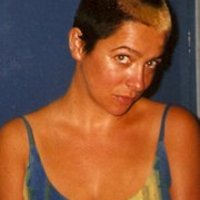- Karen Berger has a Grad. Dip. Animateuring and a B. Music Performance from the Victorian College of the Arts, and a M... moreKaren Berger has a Grad. Dip. Animateuring and a B. Music Performance from the Victorian College of the Arts, and a M.A. Performance Studies from Victoria University (for which she won the College of Arts ‘Most Outstanding Post Graduate Award’). She has worked as director and/or music director for productions such as 'From the Republic of Conscience' (based on poems published by Amnesty International, 1998), 'Walk on Water' (Melbourne City Baths, 2000), 'Nightfalling' (Women’s Circus, 2000), 'Le Petit Prince' (Ghanaian tour, 2004; Melbourne French Theatre, 2007), 'Bremen' (Melbourne Fringe Festival Award Winner, 2005), 'The Golem of Ruckers Hill' (2007), 'Teapot Ensemble of Australia' (Melbourne International Arts Festival, 2007; Singapore Children’s Arts Festival, 2009), 'Semaphore' (CultureLAB, 2010) and 'The Parricide' (La Mama, 2014). Other projects include playing the mother in 'Six Characters in Search of an Author' (La Mama, 2011), Polonius in Hamlet (2005); and performing in 'Navigators' (Melbourne International Arts Festival, 2006), 'Believer' (award winner, Edinburgh Fringe Festival, 1992) and 'Nomad X' (toured Bosnian refugee camps, 1992).edit
This paper investigates border-making dynamics in the two political arenas where my subjectivity is most acutely implicated across time—the Jewish Holocaust (as an intergenerational victim) and the Aboriginal genocide (as an unwitting... more
This paper investigates border-making dynamics in the two political arenas where my subjectivity is most acutely implicated across time—the Jewish Holocaust (as an intergenerational victim) and the Aboriginal genocide (as an unwitting beneficiary). Albeit that there are many differences between the drivers of antisemitism and racism against Indigenous Australians, I investigate both of these racist structures through the lens of border-thinking as theorised by Walter Mignolo as a method of decolonisation (2006). The article has been formatted as an example of discursive border-crossing by juxtaposing theoretical ideas (particularly inspired by Zygmunt Bauman and Deborah Bird Rose) with interjections from my personal journal. I explore my own performative storytelling as a means for me to take responsibility to question power structures, acknowledge injustice, and to enact the potential for ethical dialogue between myself and others. This responsibility gestures to the possibility of...
Research Interests:
In this paper I will make use of extensive quotes to demonstrate the striking and surprising similarities in the writing of these three artists as they try to express what is ultimately inexpressible – their deepest experiences of life.
Research Interests:
Research Interests:
In this paper I will make use of extensive quotes to demonstrate the striking and surprising similarities in the writing of these three artists as they try to express what is ultimately inexpressible – their deepest experiences of life.
Research Interests:
Research Interests:
In searching for belonging, a fundamental starting point is the earth to which we will all eventually return. The discussion that follows explores intersections between stories of cemeteries as told by Hélène Cixous, Margaret Somerville,... more
In searching for belonging, a fundamental starting point is the
earth to which we will all eventually return. The discussion that
follows explores intersections between stories of cemeteries as told by Hélène Cixous, Margaret Somerville, Noongar writer, Kim Scott, and some of this author’s own writing. Cemeteries as places and the ritual of funerary events leads to an investigation of “performed behaviour” that has occurred at such significant sites and the ritual gestures and monuments that remain. Is it possible to move from these explorations to a conception of an “uncountry” in which we are all allowed a level of belonging?
earth to which we will all eventually return. The discussion that
follows explores intersections between stories of cemeteries as told by Hélène Cixous, Margaret Somerville, Noongar writer, Kim Scott, and some of this author’s own writing. Cemeteries as places and the ritual of funerary events leads to an investigation of “performed behaviour” that has occurred at such significant sites and the ritual gestures and monuments that remain. Is it possible to move from these explorations to a conception of an “uncountry” in which we are all allowed a level of belonging?
Research Interests:
When Yorta Yorta/Kurnai woman, Andrea James, first heard the phrase ‘To soothe the pillow of a dying race’, refering to the aim of supposedly well meaning early to mid twentieth century ‘protectors’ of the Aboriginals, she was painfully... more
When Yorta Yorta/Kurnai woman, Andrea James, first heard the phrase ‘To soothe the pillow of a dying race’, refering to the aim of supposedly well meaning early to mid twentieth century ‘protectors’ of the Aboriginals, she was painfully shocked…and then she started making theatre about it. It was the starting point for her 3 week residency at Sydney’s Performance Space in November 2011. The residency commenced with work with visual artist, Bindi Cole on a large scale installation. I joined the project for the last week’s performance development, together with three Indigenous performers. In this paper I investigate the ways responses to powerful language can drive the theatre making process. I also look at the use of radically contrasting language within the development and where language became completely superceded by other media.
